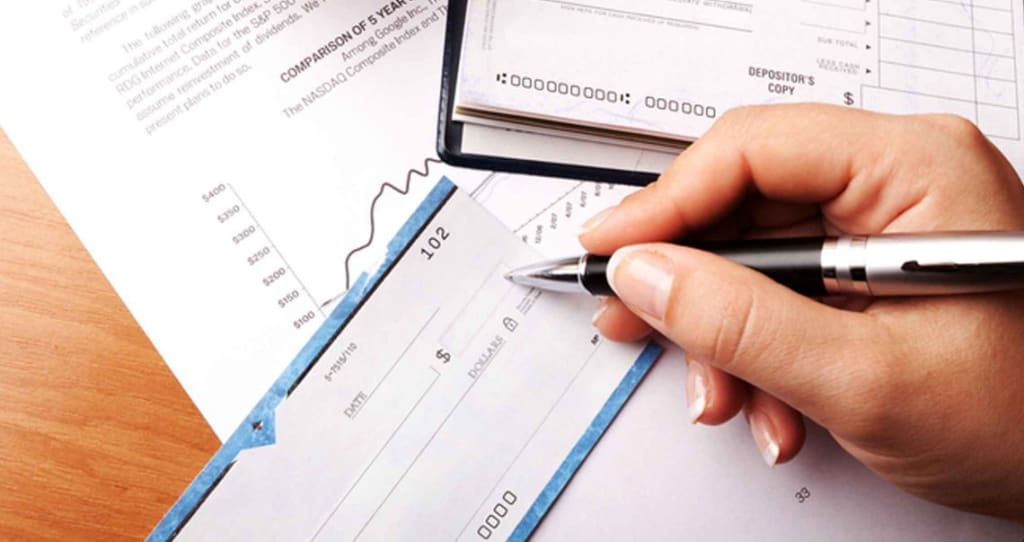Why Do Americans Rely on Checks Instead of Bank Transfers?
The use of checks America has deep historical roots

In a time purely dominated by digital-based transactions and financial innovation, the continuous surge in the usage of checks in the United States might seem like an anachronism to many. This is more so because almost the entire world has now shifted to an online banking system powered by electronic modes of payment.
This phenomenon raises questions about the factors that cause a persistent preference for management over modern and clearly effective methods. Understanding this interest requires delving into the history, culture, and infrastructure shaping payment methods in the United States.
1. Past Experiences and reliability
The use of checks in America has deep historical roots, dating back to the beginning of the nation's financial system. Deposits have become a popular method for completing transactions without the need to carry large sums of money, providing a secure and written way to transfer money.
A long history has increased Americans' trust in checks as a reliable form of payment, which is why new digital payment methods are still struggling to match the public trust issue.
2. Banking Set-up and Fees
The banking infrastructure in the U.S. also plays a significant role in the sustained use of checks. Unlike some European countries, where bank accounts and transfers are often provided at low or no cost, American banks have traditionally charged fees for electronic transfers.
Additionally, the absence of a universal bank transfer system like the Single Euro Payments Area (SEPA) in Europe means that bank transfers can be less straightforward in the U.S., leading individuals and businesses to stick with checks to avoid these complications and fees.
3. Regulatory Environment
The regulatory authority, which mainly governs financial transactions in the United States, has almost influenced the persistent use of checks. People feel that the regulations for e-payments are more stringent, and they also involve compliance requirements when it comes to offering protection from fraudulent activities, anti-money laundering, or knowing your customer programs.
Be it for individuals or small-scale businesses, it isn't easy to sail through the complex process. Checks, in comparison, are not just used but have been understood under legal framework for decades now. This is one of the biggest reasons why checks are more prevalent in the US.
4. Personal Interests and Safety concerns
For many Americans, the interest in checking for wire transfers stems from concerns about privacy and data protection.
Verification allows you to complete transactions without sharing personal banking information and computers, which can reduce the risk of cyber theft and fraud. This level of privacy and control of personal information is appealing to people who are wary of the vulnerabilities associated with digital financial transactions.
5. Business Practices and B2B Transactions
Checks continue to hold sway in the business sector, particularly for B2B transactions. Many businesses prefer checks for record-keeping purposes, as they provide a physical paper trail that can be useful for accounting and tax documentation.
Moreover, the delay inherent in check processing can be beneficial for managing cash flow, allowing businesses to maintain liquidity while awaiting the clearance of payments. This aspect of check usage is particularly valued in industries where large transactions are common and financial flexibility is essential.
6. The Digital Divide and User-friendliness
Despite the propagation of digital payment options, the digital divide continues in the country, with a noteworthy portion of the people lacking access to the technology or internet connection essential to make electronic payments possible.
On the contrary, checks only require a check mailing address and a postage stamp, making them quite an easy option for many people, including those who live in rural areas or those without bank accounts. Sending a check remains an significant link in the financial deal process for most Americans, connecting the gap left by the digital divide.
7. The Future of Payments in the U.S.
Although checks maintain a significant presence in the US financial sector, this system is slowly moving towards electronic payments. Start-ups like the Clear-Time Payments (RTP) network aim to modernize America's payment infrastructure, offering instant, secure, and affordable transfers. As these systems become more widespread and trusted, the reliance on checks will likely diminish, giving way to a more digital-centric approach to payments.
8. Impact of Financial Literacy
Financial literacy always plays a significant role in the entire context of using checks instead of bank transfers. Most Americans are not conscious of the threats or dangers that come with the use of online banking or electronic payment systems.
Therefore, they find it reliable to rely on management. In addition, the use of electronic payment systems lacked popularity or awareness, which also contributed to the continued use of checks.
Final Words
The continued reliance on checks in the United States is a complex phenomenon rooted in historical trust, banking infrastructure, business practices, accessibility, and personal preferences.
While digital payment methods are on the rise, the transition away from checks is gradual, influenced by the need to balance innovation with accessibility, security, and privacy. As America's financial landscape evolves, the role of checks is likely to change, but their legacy will remain a significant part of the country's banking history.





Comments
There are no comments for this story
Be the first to respond and start the conversation.